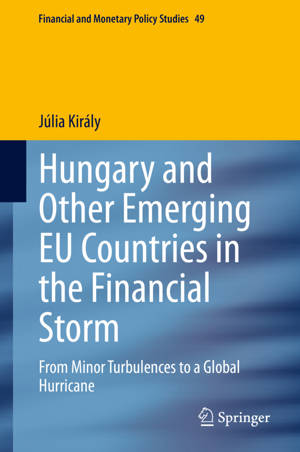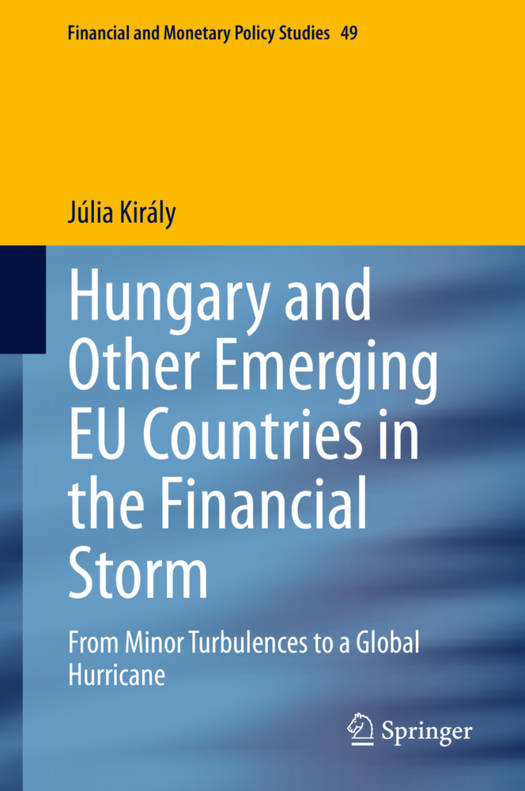
En raison d'une grêve chez bpost, votre commande pourrait être retardée. Vous avez besoin d’un livre rapidement ? Nos magasins vous accueillent à bras ouverts !
- Retrait gratuit dans votre magasin Club
- 7.000.000 titres dans notre catalogue
- Payer en toute sécurité
- Toujours un magasin près de chez vous
En raison de la grêve chez bpost, votre commande pourrait être retardée. Vous avez besoin d’un livre rapidement ? Nos magasins vous accueillent à bras ouverts !
- Retrait gratuit dans votre magasin Club
- 7.000.0000 titres dans notre catalogue
- Payer en toute sécurité
- Toujours un magasin près de chez vous
Hungary and Other Emerging EU Countries in the Financial Storm
From Minor Turbulences to a Global Hurricane
Júlia Király
105,45 €
+ 210 points
Format
Description
This book analyzes the banking crisis and the events surrounding it in Hungary and other emerging EU member countries in 2007-2013. Written by Júlia Király, a former policymaker, and the Deputy Governor of the Hungarian Central Bank at the time of the crisis, it also offers a firsthand account of the processes in and responses to the financial crisis.
While there is extensive literature on the crisis, most of it focuses on the US or the Eurozone, sometimes mentioning the "emerging world" in passing. However, Central and Eastern Europe experienced the crisis very differently than other emerging countries. In the pre-crisis years, the region in accession to the EU attracted abundant fresh capital, but the seemingly unconstrained global liquidity fuelled credit bubbles. After the Lehman crisis, capital rapidly fled these countries. In this part of the world, the recession proved to be much worse than elsewhere, with double-digit growth soon turning into a double-digitdecline in GDP. Several countries had to turn to the IMF and the EU for stand-by credit. Based on her own inside experience as a top central banker, the author offers a personal yet professional analysis of the causes and consequences of the financial hurricane.
Spécifications
Parties prenantes
- Auteur(s) :
- Editeur:
Contenu
- Nombre de pages :
- 145
- Langue:
- Anglais
- Collection :
- Tome:
- n° 49
Caractéristiques
- EAN:
- 9783030495435
- Date de parution :
- 19-08-20
- Format:
- Livre relié
- Format numérique:
- Genaaid
- Dimensions :
- 156 mm x 234 mm
- Poids :
- 412 g

Les avis
Nous publions uniquement les avis qui respectent les conditions requises. Consultez nos conditions pour les avis.






